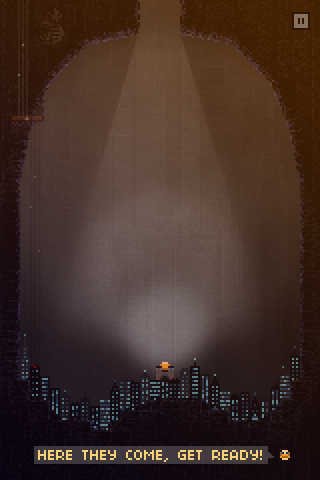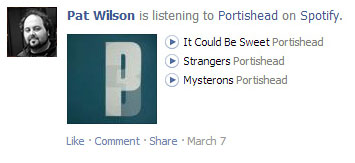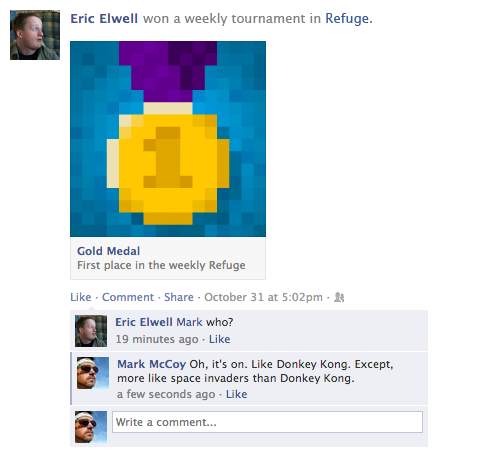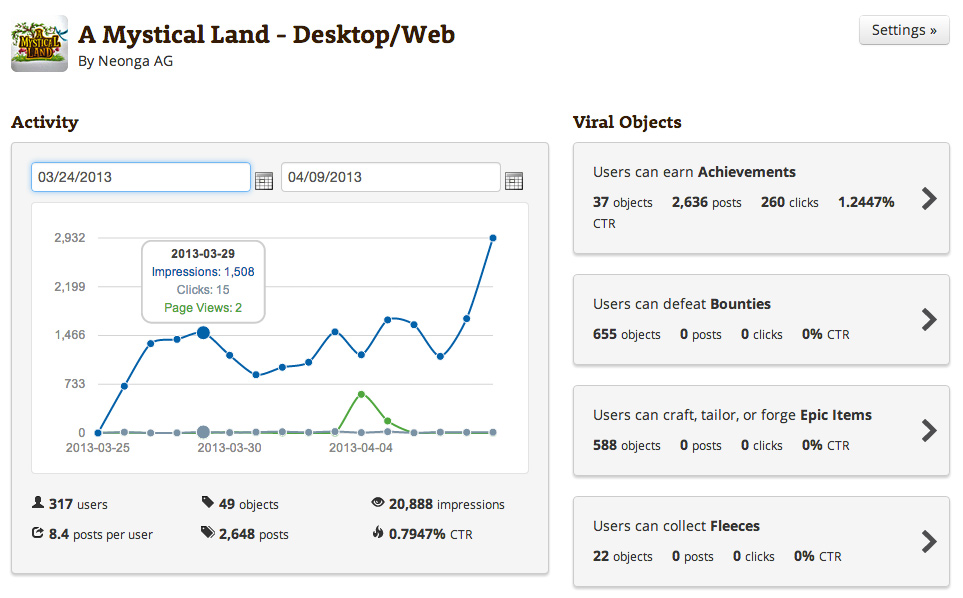
Last year, I was working on a small iOS game called Refuge. While planning for release we faced a problem: How do we get the word out about our game?
Update: This post was written back when we were known as Carrot. Since then, we’ve rebranded to Teak.
Our game was an homage to Space Invaders and Missile Command. Aliens are attacking an underground city and players score points by fending off aliens and get bonuses for combo-kills and bounce shots.

As a small team, we couldn’t afford a huge marketing budget. So we had to think about how would we grow our game. The mobile market is crowded, and more apps get released every day.
We could hope to be featured by Apple and picked up by blogs, but we decided our strategy couldn’t depend on luck.
Even if we were lucky enough to be featured by Apple, it’s a one time event. We wanted to be ready to make the most of any users we would pickup. No matter how we got our first users, those users needed to generate more users.
Building a viral engine
Mark, our Creative Director, was watching how Spotify exploded with new users, and said, “I want our game to do that.”

He wasn’t talking about their growth alone; he was talking about the way they spread quickly using Facebook.
Spotify was using Facebook’s then new Open Graph actions. This wasn’t the hated ‘wall spam’ that plagued the early days of Facebook, this was a different way of getting the message out about what an app does, and how your friends use it.
This was social proof, advertising and viral marketing all slammed into one! I wondered, “Why isn’t everyone using this!?”
Our plan was to take all the great moments of our game and turn them into social advertisements that promoted our game. Every attractive thing that our game did and every cool action our users performed would get sent to Facebook. Users having fun became the center of our marketing plan.

We quickly had highscores and tournament awards posting. It was fun seeing our test posts mixed right into the Facebook experience.
Soon, our friends found our test game through the Facebook stories. Competition and banter broke out around the automatic weekly tournament posts.
3 things became immediately obvious:
- This is a useful strategy for any app.
- This isn’t a cakewalk.
- We weren’t working on a game anymore.
We got carried away with this. We had more ideas about making cool viral marketing tools than ideas about making our game better.
Fighting bugs and getting carried away
Alex, (our CTO, who might be a secret masochist) had experience shipping Facebook games, so he was awarded the joy of fighting through out-of-date documentation, confusing API calls, and poorly designed workflows. He became an expert in Facebook bugs.
Mark, (a fan of The Lean Startup and rapid iteration) insisted we needed to be able to update our messaging without an app update. So, we built a cloud based editing interface that would allow real time tuning of viral messaging.
I used my background in cross platform development to write native SDKs for iOS, Android, and any platform that seemed useful. (Need a platform we don’t have? Let me know.)
Productizing “viral engine tuning”

By the end of the process, we had built a WYSIWYG tool that allows you to create and manage Open Graph stories. We had become experts on the Facebook platform. Plus we had lots of insight about the right and the wrong ways to do this.
We quickly realized the potential of this idea was a bigger opportunity than the game we were working on. We put our game on the back burner and started a new type of advertising company, one that puts your users in the center of the campaign.
Interested in Carrot? We are currently seeking early adopters who want a competitive edge. Our early adopters get personal service because your success is our success. Our goal is to build amazing tools for you.
– Pat (CEO)

